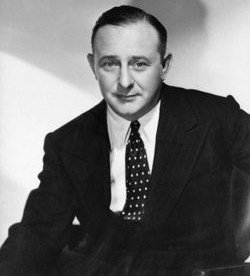Gallery de Saint-Germain
Musicals
Musical theatre is a form of theatrical performance that combines songs, spoken dialogue, acting and dance. The story and emotional content of a musical – humor, pathos, love, anger – are communicated through words, music, movement and technical aspects of the entertainment as an integrated whole. Although musical theatre overlaps with other theatrical forms like opera and dance, it may be distinguished by the equal importance given to the music as compared with the dialogue, movement and other elements. Since the early 20th century, musical theatre stage works have generally been called, simply, musicals.
Although music has been a part of dramatic presentations since ancient times, modern Western musical theatre emerged during the 19th century, with many structural elements established by the works of Gilbert and Sullivan in Britain and those of Harrigan and Hart in America. These were followed by the numerous Edwardian musical comedies and the musical theatre works of American creators like George M. Cohan at the turn of the 20th century. The Princess Theatre musicals (1915–1918) were artistic steps forward beyond revues and other frothy entertainments of the early 20th century and led to such groundbreaking works as Show Boat (1927), Of Thee I Sing (1931) and Oklahoma! (1943). Some of the most famous musicals through the decades that followed include My Fair Lady (1956), The Fantasticks (1960), Hair (1967), A Chorus Line (1975), Les Misérables (1985), The Phantom of the Opera (1986), Rent (1996), The Producers (2001), Wicked (2003) and Hamilton (2015). In 2020–2021, many musical theatre productions were shut down due to the COVID-19 pandemic.
Musicals are performed around the world. They may be presented in large venues, such as big-budget Broadway or West End productions in New York City or London. Alternatively, musicals may be staged in smaller venues, such as fringe theatre, off-Broadway, off-off-Broadway, regional theatre, or community theatre productions, or on tour. Musicals are often presented by amateur and school groups in churches, schools and other performance spaces. In addition to the United States and Britain, there are vibrant musical theatre scenes in continental Europe, Asia, Australasia, Canada and Latin America.
Musical theatre is closely related to the theatrical form of opera, but the two are usually distinguished by weighing a number of factors. First, musicals generally have a greater focus on spoken dialogue.[7] Some musicals, however, are entirely accompanied and sung-through, while some operas, such as Die Zauberflöte, and most operettas, have some unaccompanied dialogue.[7] Second, musicals usually include more dancing as an essential part of the storytelling, particularly by the principal performers as well as the chorus. Third, musicals often use various genres of popular music or at least popular singing and musical styles.[8]
Finally, musicals usually avoid certain operatic conventions. In particular, a musical is almost always performed in the language of its audience. Musicals produced on Broadway or in the West End, for instance, are invariably sung in English, even if they were originally written in another language. While an opera singer is primarily a singer and only secondarily an actor (and rarely needs to dance), a musical theatre performer is often an actor first but must also be a singer and dancer. Someone who is equally accomplished at all three is referred to as a "triple threat". Composers of music for musicals often consider the vocal demands of roles with musical theatre performers in mind. Today, large theatres that stage musicals generally use microphones and amplification of the actors' singing voices in a way that would generally be disapproved of in an operatic context.[9]
Some works (e.g. by George Gershwin, Leonard Bernstein and Stephen Sondheim) have been made into both "musical theatre" and "operatic" productions.[10][11] Similarly, some older operettas or light operas (such as The Pirates of Penzance by Gilbert and Sullivan) have been produced in modern adaptations that treat them as musicals. For some works, production styles are almost as important as the work's musical or dramatic content in defining into which art form the piece falls.[12] Sondheim said, "I really think that when something plays Broadway it's a musical, and when it plays in an opera house it's opera. That's it. It's the terrain, the countryside, the expectations of the audience that make it one thing or another."[13] There remains an overlap in form between lighter operatic forms and more musically complex or ambitious musicals. In practice, it is often difficult to distinguish among the various kinds of musical theatre, including "musical play", "musical comedy", "operetta" and "light opera".[14]
Like opera, the singing in musical theatre is generally accompanied by an instrumental ensemble called a pit orchestra, located in a lowered area in front of the stage. While opera typically uses a conventional symphony orchestra, musicals are generally orchestrated for ensembles ranging from 27 players down to only a few players. Rock musicals usually employ a small group of mostly rock instruments,[15] and some musicals may call for only a piano or two instruments.[16] The music in musicals uses a range of "styles and influences including operetta, classical techniques, folk music, jazz [and] local or historical styles [that] are appropriate to the setting."[4] Musicals may begin with an overture played by the orchestra that "weav[es] together excerpts of the score's famous melodies."[17]
Musicals - Composer
Richard Rodgers
Musicals - Lyricist
Oscar Hammerstein II
Musicals - Composer - Lyricist
Charles Strouse
Musicals - Lyricist
Alan Jay Lerner
Musicals - Composer
Frederick Loewe
Musicals - Composer
John Kander
Musicals - Lyricist
Fred Ebb
Musicals - Composer
Jule Styne
Musicals - Composer - Lyricist
Richard M. Sherman
Musicals - Composer - Lyricist
Robert B. Sherman
Musicals - Composer - Conductor
Leonard Bernstein
Musicals - Lyricist
Stephen Sondheim
Musicals - Composer - Lyricist - Playwright
Leslie Bricusse
Musicals - Lyricist - Composer - Actor - Singer
Anthony Newley
Musicals - Composer
George Gershwin
Musicals - Lyricist
Ira Gershwin
Musicals - Composer
Nacio Herb Brown
Musicals - Lyricist - Composer - Conductor
Michel Legrand
Musicals - Composer
Arthur Freed
Musicals - Composer
Harold Arlen
Musicals - Lyricist
Edgar "Yip" Harburg
Musicals - Composer
Alan Menken
Musicals - Lyricist
Howard Ashman
Musicals - Composer
Andrew Lloyd Webber
Musicals - Lyricist
Tim Rice
Musicals - Composer - Lyricist
Marc Shaiman
Musicals - Composer - Lyricist
Cole Porter
Musicals - Singer
Marni Nixon
Musicals - Singer - Actor
Barbra Streisand
Musicals - Singer - Actor
Debbie Reynolds
Musicals - Singer - Actor
Rex Harrison
Musicals - Singer - Actor
Julie Andrews
Musicals - Singer - Actor
Howard Keel
Musicals - Singer - Actor
Judy Garland
Musicals - Singer - Actor
Liza Minnelli
Musicals - Singer - Actor
Dick Van Dyke
Musicals - Singer - Actor
Shirley Jones
Musicals - Singer - Actor
William Warfield
Musicals - Singer - Actor
Shirley Temple
Musicals - Singer - Actor
Richard Harris
Musicals - Singer - Actor
Angela Lansbury
Musicals - Singer - Actor
Robert Preston
Musicals - Singer - Actor
Bill Robinson
Musicals - Singer - Actor
Jane Powell
Musicals - Singer - Actor
Bill Lee
Musicals - Singer - Actor
Bette Midler
Musicals - Singer - Actor
Maurice Chevalier
.
Begin Your Journey
Become A Donor Or Advertiser
.
The Gift Shop




















































